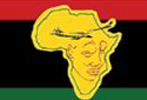As market vendors are beaten and the sick unable to move to hospitals, the wealthy prepare for the long-haul in their solar-powered homes.

On March 30, President Museveni announced the immediate shut down of all non-essential services and the prohibition of all public and private transportation, including movement to hospitals, for 14-days in Uganda. This announcement came in the wake of several previous measures implemented to control the spread of COVID-19, notably school and border closures across the country. Uganda follows the lead of governments in North America, Europe and Asia, who launched similar efforts this month. But even in countries with social service options, robust health care systems, and government-funded emergency COVID-19 relief, citizens cannot afford to live under such draconian measures for long. The Ugandan government’s decision to lockdown the country without delivering financial assistance, or without concern for how most Ugandans are to survive, is proof of their continual disregard for Ugandan lives.
In an address on March 30, President Museveni took no responsibility for the severity and recklessness through which Uganda’s COVID-19 measures have been enforced. Instead, he blamed peoples’ “carelessness” and unwillingness to stay home or under quarantine for the government’s decision to move forward with the 14-day shutdown, explicitly referencing the eight recent travelers caught evading mandatory quarantine. Thirty-three people have tested positive for COVID-19, all but three with a history of travel. Museveni concluded that because there is no way of knowing who these people encountered and how many of them are now infected, a 14-day lockdown is necessary as “there is less risk with maximum restrictions than gambling with the virus.”
In an offensive twist, the very ones who brought the virus into the country—those whose wealth allows intercontinental travel—are among the few who would be the least affected by Uganda’s lockdown. Most Ugandans, rather than with a fear of dying from infection, are now grappling with the possibility of starvation with no work and no money to feed their families. How the government will enforce these latest measures is yet to be fully realized, however violent confrontations between civilians and the Ugandan military have already been recorded throughout the country. Shortly after President Museveni’s first national address over a week ago, soldiers stationed in Gulu Town in northern Uganda raided street vendors, beat boda boda riders, and destroyed property. The Resident District Commissioner (RDC) of the area quickly apologized over the radio for the incident. However, violent arrests have continued; for people disobeying social distancing orders, market vendors attempting to sell their wares, and health care workers refusing to work.
We may criticize Uganda’s extreme COVID-19 measures, however, they come directly from the World Health Organization’s guidelines for responding to the community spread of the virus. This document recommends social distancing through mass closures as an effective means to control the pandemic. As more countries adopt sweeping measures in an attempt to contain COVID-19, critics have already noted that social distancing is not a one-size-fits-all model, and in fact, may prove to be more lethal than the virus itself. We now must wait to see how the government responds to the millions of Ugandans suddenly without access to livelihood and income. In the meantime, as market vendors are beaten and the sick unable to move to hospitals, the wealthy prepare for the long-haul in their solar-powered homes with refrigerators and pantries stocked full of food.

